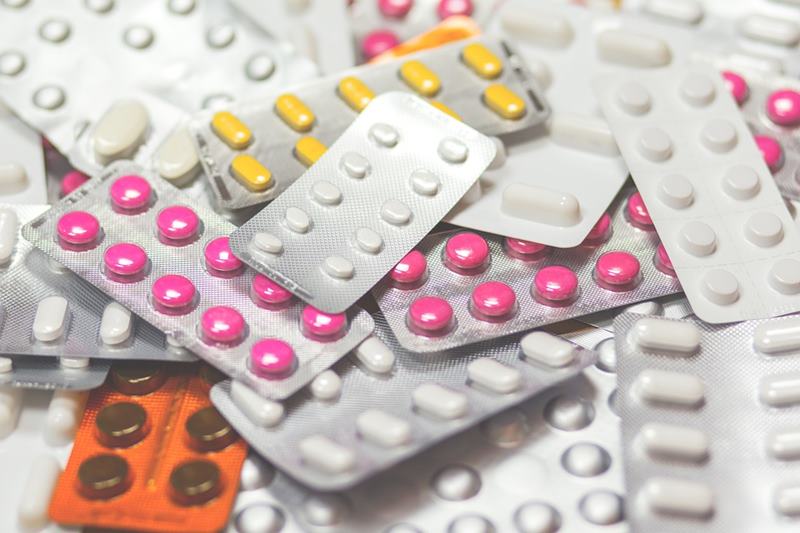‘Tuberculosis patients switch to expensive, incorrect medicines due to shortage of drugs at govt health centres’
Health activists in India write to the Union health minister highlighting the shortage of essential TB drugs in the country. The shortage is forcing patients to switch to the expensive and often incorrect dosage of the regimen, they say. Details here.


Image used for representation purpose. Photo: Pixabay
A group of tuberculosis (TB) survivors and persons working on the disease’s treatment and patients’ rights have highlighted that there is a shortage of essential drugs for treatment of TB and Multidrug Resistant–TB patients across the country.
A letter in this regard has been issued to the Union Health Minister Mansukh Mandaviya, Secretary, Ministry of Health & Family Welfare Rajesh Bhushan, Additional Secretary Arti Ahuja, and Deputy Director General of Central TB Division Sudarsan Mandal.
In the letter dated August 19, Ganesh Acharya, a Mumbai-based TB survivor, has pointed out that since May this year, there have been regular reports of shortage of drugs for treatment of TB and MDR-TB in several Directly Observed Treatment Short-course (DOTS) centres across the country.
For effective treatment of the TB patients, a trained health care worker or other designated individual (excluding a family member) provides prescribed TB drugs and ensures the patients get their medicines regularly. This is done through DOTS centres in rural India.
“Stock outs and shortages of TB drugs result in treatment interruptions that can seriously hamper the effectiveness of treatment. Adherence to treatment is necessary for effective and complete cure,” reads the letter.
“Poor adherence would lead to treatment failure and increase the risk of drug resistance which could be transmitted to others,” warned TB survivors and activists in the letter.
Also Read: Bombay High Court directs the Central govt to compulsorily procure two patented TB drugs
India has the world’s highest burden of tuberculosis, with an estimated 2.69 million new cases every year, notes a 2019 report of the World Health Organization (WHO). Every fourth Multi-Drug Resistant-TB patient is from India.
The Indian government promises free diagnosis and treatment to all patients. India’s TB Free campaign aims to eliminate TB in the country by 2025, five years ahead of the global target of 2030. The letter warned that the shortage of essential TB drugs would further burden the program by adding more cases of resistant TB.

Also Read: Budgam’s journey towards becoming India’s first TB-free district
Shortage of first-line and second-line drugs
According to the WHO, the currently recommended treatment for new cases of drug-susceptible TB is a six-month regimen of four first-line drugs: Isoniazid, Rifampicin, Ethambutol and Pyrazinamide.
Treatment for the Multi-Drug resistant-TB, defined as resistance to isoniazid and rifampicin (the two most powerful anti-TB drugs) is longer, and requires more expensive and more toxic drugs.
For most patients diagnosed with MDR-TB, WHO recommends treatment for 20 months with a regimen that includes second-line anti-TB drugs such as high dose levofloxacin.
All cases of tuberculosis are expected to be tested for susceptibility to first-line drugs, and those with rifampicin-resistant and MDR-TB enrolled on second-line rather than first-line regimens.
The TB survivors and persons working on TB treatment and patients’ rights revealed that persistent shortages so reported have occurred both in first-line and second-line TB regimens.
“These stock outs have not been limited to a particular State or region but have taken place across the country,” the letter highlighted. This data is based on the information received from the community as well as TB patients themselves in the affected areas.

Impact on patients
Such stock-outs are asserted to have imposed an unnecessary financial burden on the patients. The stock-out of these essential drugs is forcing the patients to switch to the expensive and often incorrect dosage of the regimen, pointed out the letter.
It is estimated that the lack of required treatment forces the patients to visit the centres multiple times, often skipping work, in the hope that they would receive the drug and will be able to maintain adherence to the treatment regimen. “Such stock-outs thus are not only a challenge to adherence but also force the patients to choose between their health and their livelihood,” stated the letter.
Also Read: Explained: Double burden of COVID19 and Tuberculosis
In view of this, the survivors and activists have urged the ministers to take ‘prompt’ action to ensure a continuous and uninterrupted supply of first-line and second-line anti-TB drugs to all DOTS centres in India.
Besides, the network of survivors have urged the ministers to ‘urgently’
- Undertake emergency procurement and relocation of stocks to DOTS & DOTS Plus centres experiencing stock outs and shortages of anti-TB drugs.
- Undertake a rapid assessment of anti-TB drug stocks across DOTS & DOTS Plus centres in India, and make the report on the same publicly available.
- Strengthen and streamline the drug forecasting, procurement and supply chain mechanism to prevent future stock outs.
- Health ministry should set up a Stock Monitoring Committee consisting of the TB programme officials, supply chain experts and TB community representatives that meets on a monthly basis to address shortages and stock-outs of TB drugs.

